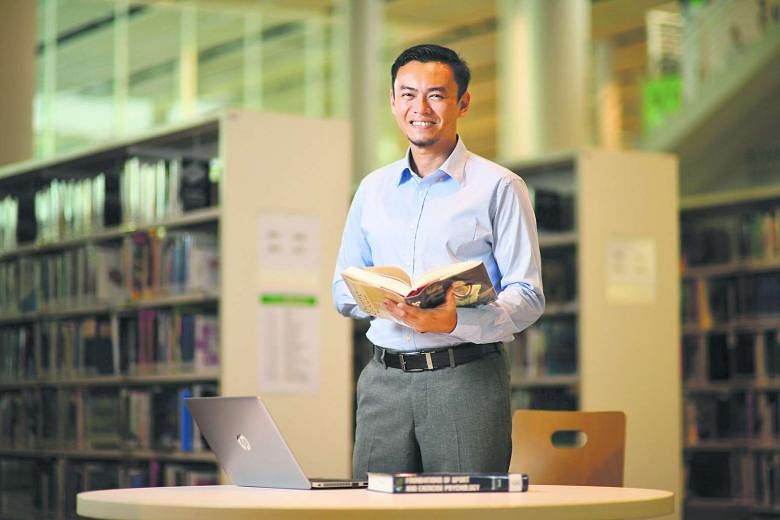AS A teacher, Dr Wan Rizal Wan Zakariah has always been interested in how a student learns and achieves mastery of a certain skill.
This interest morphed into full-fledged research when he decided to pursue a part-time Master of Science (Physical Education) at the National Institute of Education (NIE).
He says: "In teaching, understanding how students acquire skills is central to the job.
"Unfortunately, there are many theories that are not applicable in practice, and many assessments that students take are focused on performance."
The 38-year-old is a senior lecturer in sports and exercise science at the School of Sports, Republic Polytechnic, where he teaches a module on human motor control and learning.
He is also researching two phenomena - how decision-making affects a person and his ability to resist perturbations.
He became interested in research during his undergraduate studies, when he was studying for a Bachelor of Science (Education) (Physical Education & Sports Science) at NIE.
One of his professors was working on a project related to the dynamical systems theory and Dr Rizal wanted to explore it further.
He approached his professor about furthering his studies, and after the first year of his master's programme, he converted his degree to a full-time five-year Doctor of Philosophy (PhD) in Sports Science.
From start to finish
In his first year, he took modules in quantitative and qualitative analyses as well as thesis writing to gain strong foundational skills required for conducting research and publishing papers.
The next four years were focused on planning and designing his research, data collection, data analysis and processing, data analysis and thesis writing.
His research explored the inherent nature and behaviours of an individual and how these affect one's decision-making skills.
Once he settled on his research topic, designing the research methodology was the next crucial stage to carry out the study.
He had a tremendous amount of data to analyse, and usual statistics programs such as Microsoft Excel and SPSS were not suitable.
Instead, he had to learn a new programming language, R, and write his own code in order to compute the collected data.
The challenges didn't stop there.
Lectures and tutorials in his first year were held twice a week in the evenings. The frequency of classes was manageable, but when it came to research, he had to exercise strict time management.
He also had other commitments such as community work.
On top of that, his wife gave birth to their third child in his third year of studies.
Support from his supervisor, faculty and fellow PhD students was invaluable when the going got tough.
His professor also encouraged him to present his study at overseas conferences - in 2014, at the European Congress of Sports Science in Amsterdam; and in 2015, at the Progress in Motor Control Conference in Budapest.
"The questions that people asked at these conferences helped me tighten the gaps in my study and also helped when it came to the oral examination of my thesis," he says.
The skills he gained from doing a PhD were immeasurable.
Says Dr Rizal: "Through this programme, I have enhanced my approach in problem-solving and dealing with issues.
"I am more sensitive, analytical and critical to the information I receive and more thoughtful and measured in my responses."

